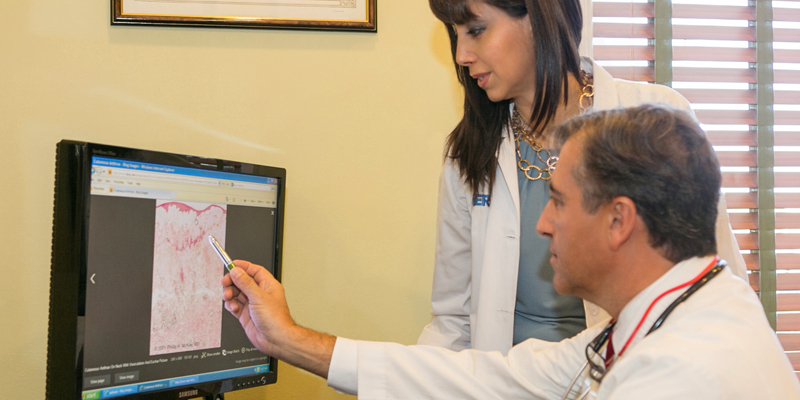
TREATING DIFFICULT ILLNESSES WITH TARGETED CARE
Internists can choose to focus their practice on general internal medicine, or may take additional training to subspecialize in one of 13 areas of internal medicine. All of VilMed’s physicians are credentialed as Infectious Diesase Specialists, and are dedicated to diagnosing and treating communicable diseases and associated chronic conditions.
ID specialists have expertise in infections of the sinuses, heart, brain, lungs, urinary tract, bowel, bones and pelvic organs. Their extensive training focuses on all kinds of infections, including those caused by bacteria, viruses, fungi and parasites. Many ID physicians specialize in treating patients with infections due to human immunodeficiency virus (HIV), the cause of AIDS.
Along with their specialized knowledge comes a particular insight into the use of antibiotics and their potential adverse effects. ID specialists also have additional training in immunology (how the body fights infection), epidemiology (how infections spread) and infection control.
When a fever raises the suspicion that you may have an infection, when an infection is potentially serious, or when problems occur with treatment, it may be necessary to consult an infectious diseases specialist. ID specialists can provide special insight into tests that will be helpful in diagnosing and understanding the infection and preventing recurrent infections. They can often help determine what treatment you need, if any, and whether you should receive antibiotics. You may not require any treatment, but if you do, they may confer with your personal physician about which diagnostic testing and forms of treatment are best suited to your needs.
If you are hospitalized for an infection or acquire an infection while hospitalized, ID specialists will follow and help direct your hospital care. In some cases, they may continue to see you after you go home from the hospital.
Although infectious diseases specialists sometimes serve as primary care physicians, in most cases you will still need your regular doctor. Usually you will be asked to return to the ID specialist for a follow-up visit to review test results and to be sure that your infection has been eliminated. ID specialists may wish to follow up with you until we feel confident that the infection will not recur. You will resume care with your regular physician when your condition has stabilized or is cured.
